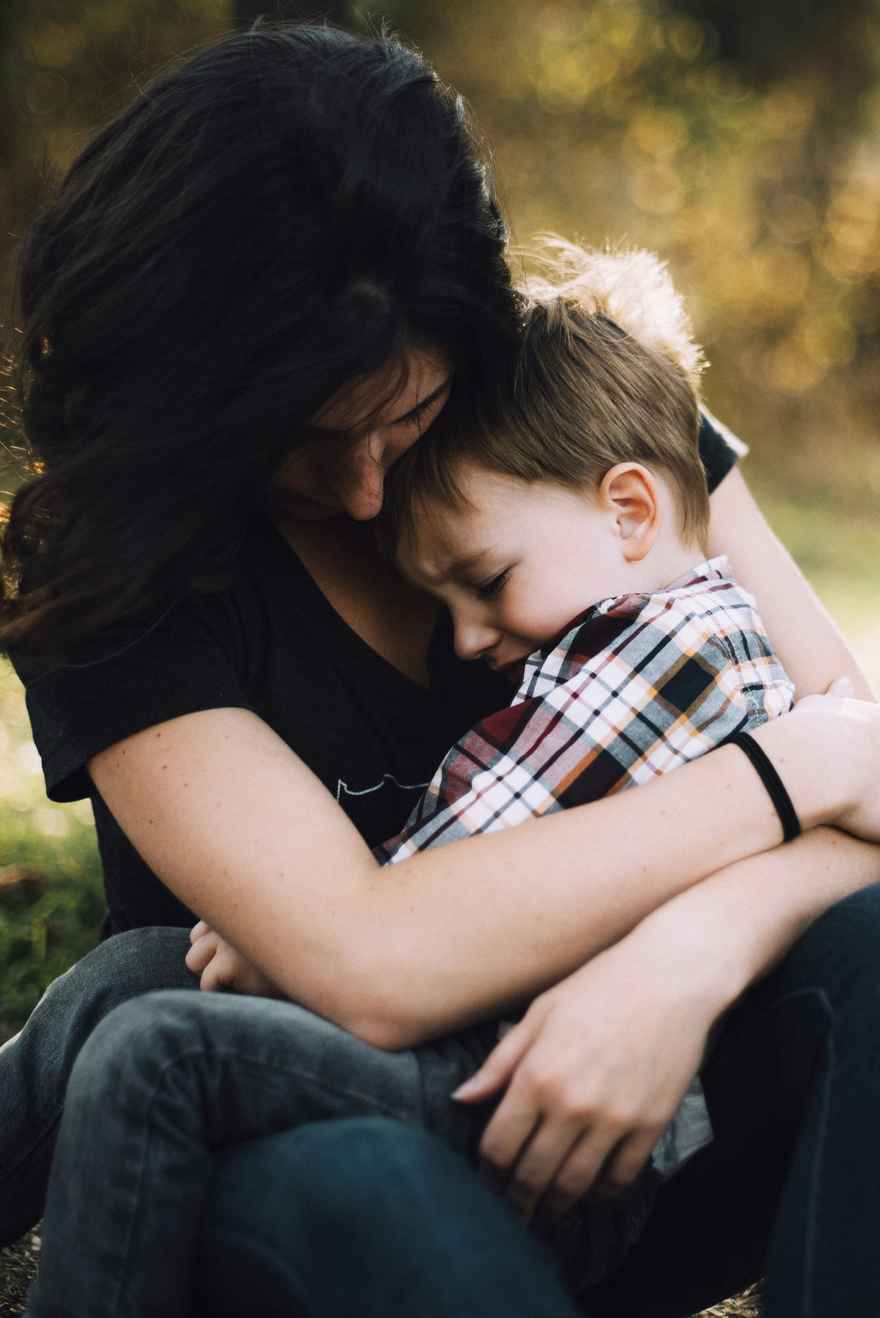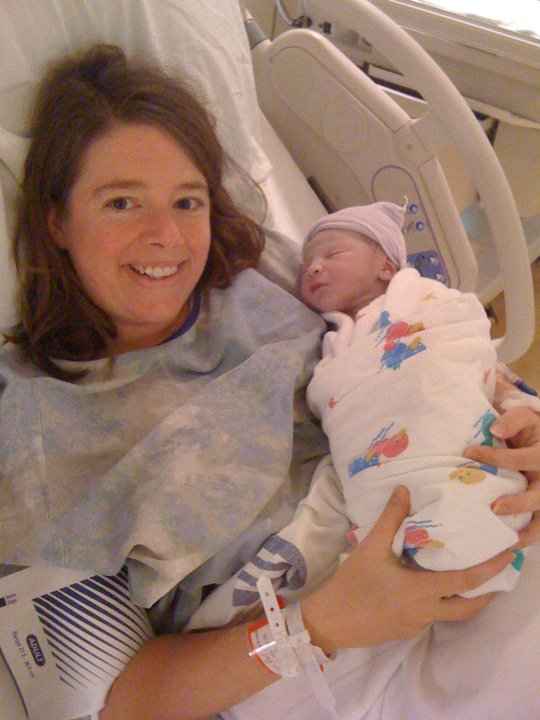Loss of Mother: Death Isn’t the Only Way to Lose Your Mom

Unfortunately, the first few years of my son's life were among the most challenging times of mine. I felt utterly alone and completely lost about how to be a mom. My mother and sisters had died before he was born, and I’d lived in our town for less than a year.
I had been a clinical psychologist for over 10 years and knew a lot about human development, parenting, and relationship dynamics. I assisted hundreds of moms as they worked through their insecurities about being new parents. But unfortunately, none of that prepared me for the utter inadequacy I felt when my son was born.
There were many times when I was suddenly and unexpectedly faced with something I didn't know anything about. I couldn't believe how difficult this was and how uncharacteristically clueless I felt as a mother.
I know I am not alone!

Loss of Mother: Death Isn’t the Only Way to Lose Your Mom
Losing a mother is one of the most profound experiences a person can endure. While death is the most obvious form of loss, it is not the only way to experience the loss of a mother. Estrangement, emotional distance, and even physical separation can create a void that feels as deep as any grave. This post explores different forms of mother loss and how they can affect daughters.
Daughter Grieving Loss of Mother: Beyond Death
Many daughters are grieving loss of a mother while their mother is still alive. This could happen for several reasons.
- Some daughters grow up with emotionally absent mothers who, despite being physically present, are unable to provide the nurturing care their daughters need.
- Others experience estrangement—perhaps due to unresolved conflicts or circumstances beyond their control.
- Being physically distant from ones mother can also create a grieving process as well.
Regardless of the reason, the loss of mom leaves daughters grappling with complex emotions. Unlike death, which is final, emotional or physical estrangement leaves room for hope, but often, that hope is met with pain.

Psychological Effects of Losing a Mother
The psychological effects of losing a mother can be long-lasting and far-reaching. Daughters who lose their mothers to death often find it hard to cope with the grief, but daughters who lose their mothers emotionally or through estrangement face unique challenges. These can manifest in a lack of self-esteem, difficulties in forming healthy relationships, and even struggles with parenting.
When a mother is absent, either physically or emotionally, the daughter might carry unresolved grief. This grief may manifest as anger, sadness, or guilt—particularly if there’s no clear understanding of why the relationship broke down. Losing a mom can leave daughters feeling as though they’re navigating life without a compass, often asking, "Who will guide me now?"
The loss of a mother, whether through death, estrangement, or emotional distance, can have deep psychological effects on a daughter. The feelings that emerge can vary, but often include a complex blend of:
-
Abandonment: Many daughters feel an intense sense of abandonment, wondering why they weren’t enough to keep the relationship intact. This can cause deep insecurities and struggles in future relationships, particularly with trust and intimacy.
-
Self-Doubt: Losing a mother can foster a persistent sense of self-doubt, especially if the relationship was fraught with conflict. Daughters may question their own worth and whether they were responsible for the loss. This doubt often seeps into their personal and professional lives, affecting their ability to confidently pursue goals.
-
Anger and Resentment: It’s common to experience anger—either towards the mother for not being present, or towards oneself for perceived failures. This anger can simmer for years, turning into resentment, particularly if there’s no closure.
-
Sadness and Loneliness: The overwhelming sadness that comes with the loss of a mom is often accompanied by loneliness. Without the maternal support system, many daughters feel isolated, particularly during significant life events where a mother’s guidance would typically be valued.
-
Guilt: Feelings of guilt may emerge, especially if the daughter feels like she contributed to the breakdown of the relationship or didn’t do enough to mend it. Guilt can be compounded by societal expectations of a close mother-daughter bond.
-
Fear: Fear often accompanies grief, particularly the fear of being alone or without guidance. Daughters who lose their mothers emotionally or physically can feel anxious about navigating life’s challenges without that maternal figure to lean on.
-
Frustration: The lack of closure in many of these losses can leave a daughter frustrated, constantly yearning for answers or wishing things had turned out differently. This frustration can be particularly difficult if the mother is still alive but unreachable.
All of these emotions are normal and appropriate when you lose a mother in any way. They stem from the fundamental human need for connection, love, and belonging. It’s essential to remember that grieving the loss of a mother, even while she is alive, is a legitimate process. Therapy, journaling, or joining support groups can help daughters work through these complex emotions and find healing.
Losing a Mother: More Than Physical Absence
Losing your mom doesn’t only refer to her physical departure. I lost my mom a year before she died. We had a huge falling out that led to us having no contact for the eight months before her death.
Many daughters feel the loss of a mother in their lives even when she’s around. This could be due to addiction, mental illness, narcissism, or a mother’s preoccupation with her own struggles. In these cases, the daughter may grow up feeling like she’s lost her mother long before death takes her.
Unfortunately, not all of us have had great experiences with our mothers. You may be one of the many women who have experienced intergenerational cycles of abuse or trauma. Toxic relationships can be passed down through the generations until awareness builds and the complicated process of breaking these cycles begins.
Sadly, there's a significant number of children who've been abandoned by their mothers. In 2020 alone, approximately 250,000 children were victims of abuse or neglect at the hands of their mothers. (U.S. Department of Health and Human Services, 2022). In addition, the relationship someone has with their mother in childhood significantly impacts later life relationships, including with their children.
Abusive relationships with someone's mother can also occur in adulthood. This often is quite painful for the daughter and impacts her later attachments with children.
Emotional estrangement occurs when a woman has had to make the tough decision to end a toxic or abusive relationship. Even when you are the one ending a relationship and making this difficult choice, having to do so is still painful. After all, we are hardwired to desire a connection with our mothers. No one wants to be estranged from her mother. You choose it because staying in the relationship is even more painful.
The severance of the mother-daughter relationship, even when the relationship is toxic, goes against our biology. Unfortunately, when the relationship is abusive, the healthiest choice is to disconnect.
This form of loss carries its unique challenges. A daughter who feels she’s losing a mother in this way may constantly strive for validation or yearn for a bond that remains elusive. Though her mother may be physically present, the emotional support she longs for is absent. Losing your mother in this way can be just as painful, as the emotional gap never quite closes.

Missing Your Mother: A Silent Grief
It’s common to see daughters who express sentiments like “I lost my mom and feel lost” when their mothers pass away. However, the pain of missing your mother while she’s still alive can feel just as disorienting. These daughters may grieve for the relationship they never had, or for the loving mother they wished they could know.
How we see ourselves as a mom, parenting styles, and parenting values are all impacted by our own experiences of being mothered. When you are estranged from your mother, there is the added complication of wanting to provide a different experience for your children than what you had growing up. As a result, there can be a real struggle with identity when you have lost your mom.
Being a Mom Without a Mom: Generational Pain
Being a Mom without a Mom is a growing challenge in the 21st century. For most of human history, women raised their children within intergenerational communities filled with support from moms, grandmas, and great-grandmas. That built-in support is becoming less common, and moms are left to learn basic mothering skills on their own.
But we aren't born knowing how to be a mom. We learn from our experiences of being mothered and from the moms we see around us, particularly our own.
The absence of a maternal figure can also create a deep sense of isolation. It’s not uncommon for daughters to feel envious of others who have their mothers around. This can trigger a variety of emotions, from jealousy to deep sorrow, as they grieve the loss of maternal support.
Healing from the Loss of a Mother
Whether through death, estrangement, or emotional distance, healing from the loss of your mother requires time, patience, and potentially professional support. Some daughters find solace in communities where others understand their unique form of grief. Others turn to journaling, therapy, or creative outlets to process their emotions. Here’s the good news: I’ve developed three key steps to help you thrive as a mom without a mom:
Step One: Process Grief
Grief often shows up in unexpected moments. Instead of avoiding it, acknowledge and embrace those feelings. Talk to the memories of your mom and then refocus on your present life. Grief is an emotion like any other—processing it helps you move forward.
Step Two: Create Your Mom Community
Mothers fill many roles, but in their absence, no one person can replace them. Build a support network to fill different maternal roles—someone for advice, emotional support, and practical help. Create a community that works together to provide what your mom once did.
Step Three: Develop Your Mom Identity
When becoming a mother, reflect on the aspects of your mom that align with your values and let go of what doesn’t. Create your own identity as a mom by embracing the positive and releasing the parts that don’t serve you.
Healing is a personal journey, but these steps can help you regain strength and build a new foundation for yourself.

Moving Forward After Loss
It’s important to remember that losing a mom—in any form—does not define who you are as a daughter or as a mother. You can move forward, carry her lessons (or the lessons her absence has taught you), and become the mother you want to be.
If you’ve experienced the loss of your mother, whether through death, distance, or emotional disconnect, your grief is valid. Healing may not come quickly, but with time, support, and self-compassion, you can create a path forward.
For extra support, consider the Echoes of Maternal Wisdom audio membership, which offers guided meditations to help you feel more confident in your role as a mother. You can also explore individual coaching options specifically designed to assist moms who don't have the support and guidance of an loving mother by their side go from feeling isolated and confused to feeling confident as they thrive.
You don’t have to navigate this journey alone—book a complimentary coaching call today, and let’s explore how I can support you in moving forward as a mom without a mom.


0 comments
Leave a comment
Please log in or register to post a comment